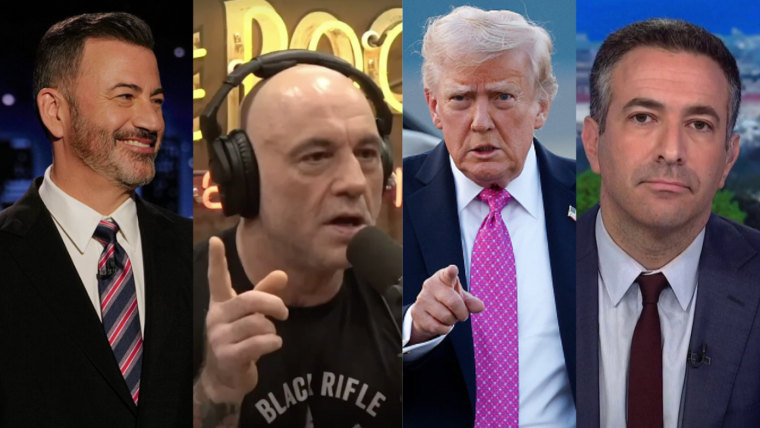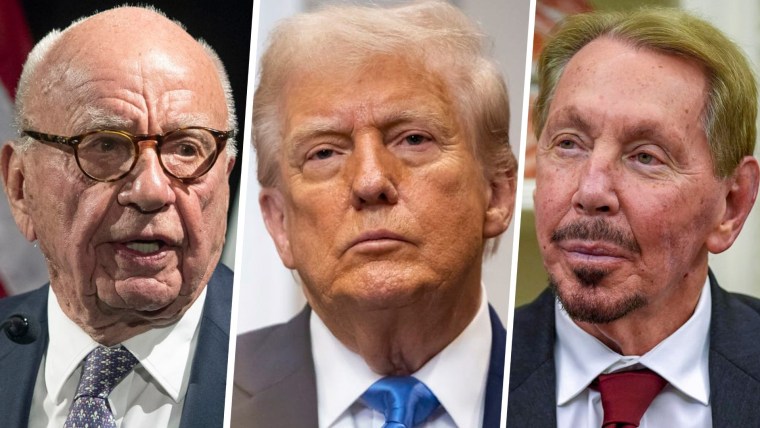Jimmy Kimmel returned to ABC on Tuesday, just under a week after the network suspended his show over comments he made about the far-right response to Charlie Kirk’s assassination. While it was a welcome change of pace in our current reality to see Kimmel back, at least for now, two days later, the president approved a deal that would hand his allies the video platform TikTok and a level of control over U.S. news and information that not long ago they could only dream of. These two stories are signs of how weak institutional U.S. media platforms, both traditional and social, are at this critical moment. And things are likely to get far worse.
The group of investors in the new TikTok reportedly would include not only media moguls Rupert Murdoch and his son Lachlan, but also major Silicon Valley businesses like venture capital firm Silver Like and software company Oracle, whose founder Larry Ellison is a major Trump ally and the second wealthiest person in the world.
Feeling underserved and unfairly attacked, tech billionaires decided the problem wasn’t their own practices, but the media itself.
TikTok’s sale still has to be finalized, including approval by China. Should the deal go through, though, Ellison would be adding a significant platform to his family’s media empire. His son, David, now owns CBS through his company Paramount Skydance. The younger Ellison is reportedly about to purchase The Free Press in a deal that would hand the conservative outlet’s founder Bari Weiss a senior leadership role at CBS News. And CNBC reports that he is mulling a bid for Warner Brothers Discovery, which owns CNN and HBO Max.
This is the latest example of the outcome of a yearslong project on the part of right-wing billionaires to disrupt the media and ultimately take it over to redirect reporting and online scrutiny of them and their allies like the president. As I detail in my recent book “Owned: How Tech Billionaires on the Right Bought the Loudest Voices on the Left,” for many years, Silicon Valley received mostly complimentary coverage from the press. But over the last decade or so, it has faced more critical newsrooms and the investigative spotlight that comes with being at the top of one of the world’s largest industries. Social media companies have come under fire for their policies, like Facebook (by its own admission) letting its platform be used to “foment division and incite offline violence” in Myanmar and Twitter’s role in shaping public opinion before U.S. elections. Silicon Valley billionaire Peter Thiel, outed in a post by Gawker affiliate Valleywag in 2007, compared members of the media to “terrorists” in 2009.
Feeling underserved and unfairly attacked, tech billionaires decided the problem wasn’t their own practices, but the media itself. The solution was to break down the industry and reshape it into something more amenable to their interests. “Move fast and break things” — how Mark Zuckerberg termed the philosophy behind the tech industry’s rise to power — was the path forward here as well. Another way to look at it was creating a parallel media establishment that would serve Silicon Valley interests, as tech investor Balaji Srinivasan put it in 2023.

Tech billionaires poured millions into an alternative media ecosystem, investing in companies like newsletter platform Substack and YouTube clone Rumble. They offered prolific writers and big-name stars the ability to generate revenue through subscriptions — and in some cases, the outlets simply paid the authors upfront to move platforms. And the biggest billionaire, Elon Musk, outright bought Twitter.
The effect of this project has been to depower and delegitimize the media. Now, these wealthy allies of the far right, who have no pretense of objectivity in reporting and no commitment to fair and accurate coverage, are finding themselves with a new opportunity. Weakened media institutions, hemorrhaging money but still with huge reach, are up for sale and open to control. And with a pliant White House ready and willing to push on companies like TikTok to allow for more politically aligned ownership, ideological consolidation feels inevitable.
Weakened media institutions, hemorrhaging money but still with huge reach, are up for sale and open to control.
This isn’t to say that newsrooms and networks don’t shoulder their own share of the blame. There’s much to criticize about for-profit media, and many books and articles have been written about the corporate consolidation of news. But while imperfect, the old paradigm at least feinted at objectivity and held reporting and holding the powerful to account in nominal high regard. The future we are heading into now, with thin-skinned men who have more money than the GDP of some countries controlling our news media, is far different.
Which brings us back to Kimmel. Disney brought the late-night host back, seemingly deciding that an angry customer base was more a threat to the bottom line than the White House. But with the media landscape shifting quickly and a new regime in place, it may only be a matter of time until a MAGA monoculture takes over the mainstream airwaves.
